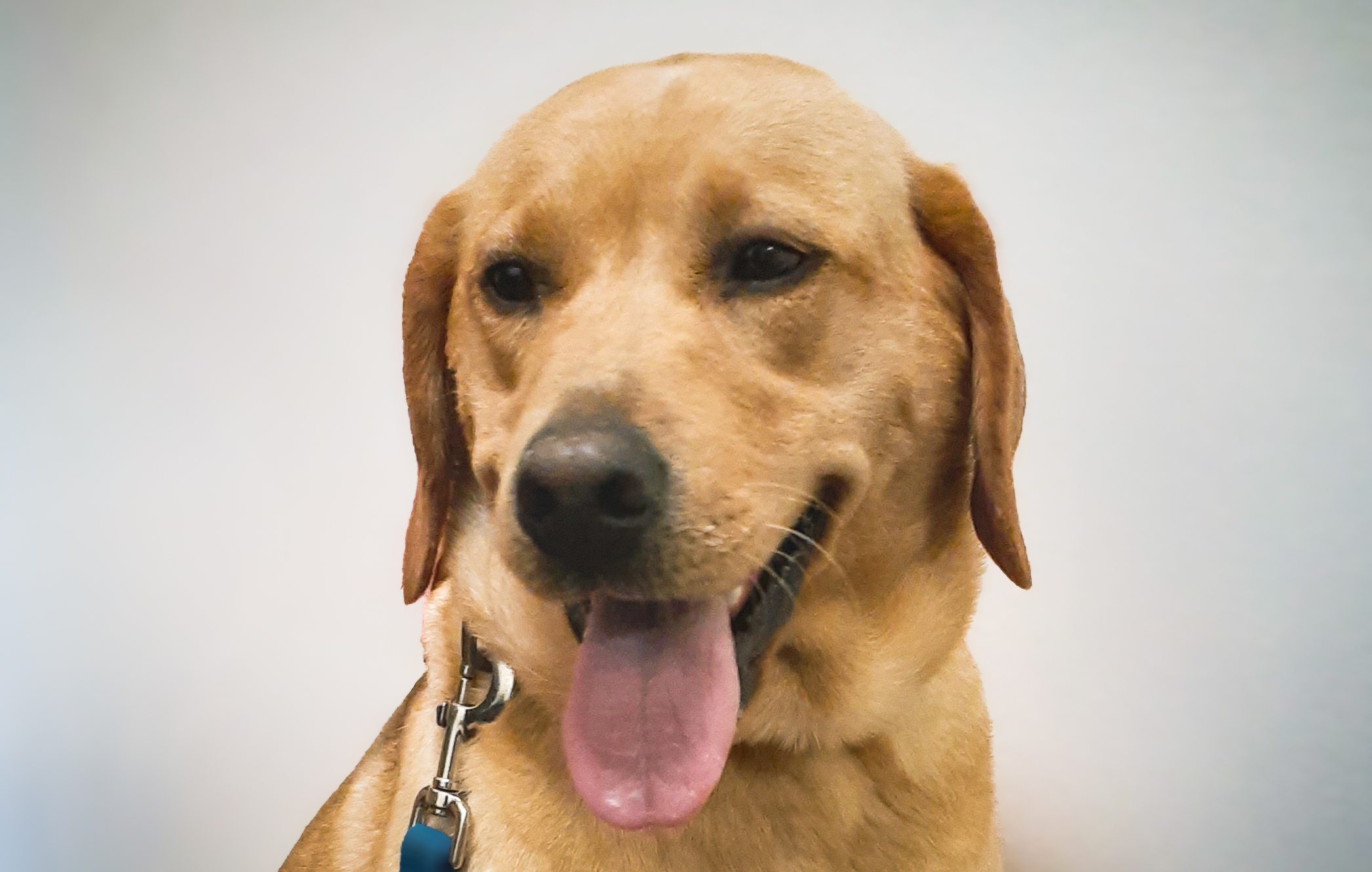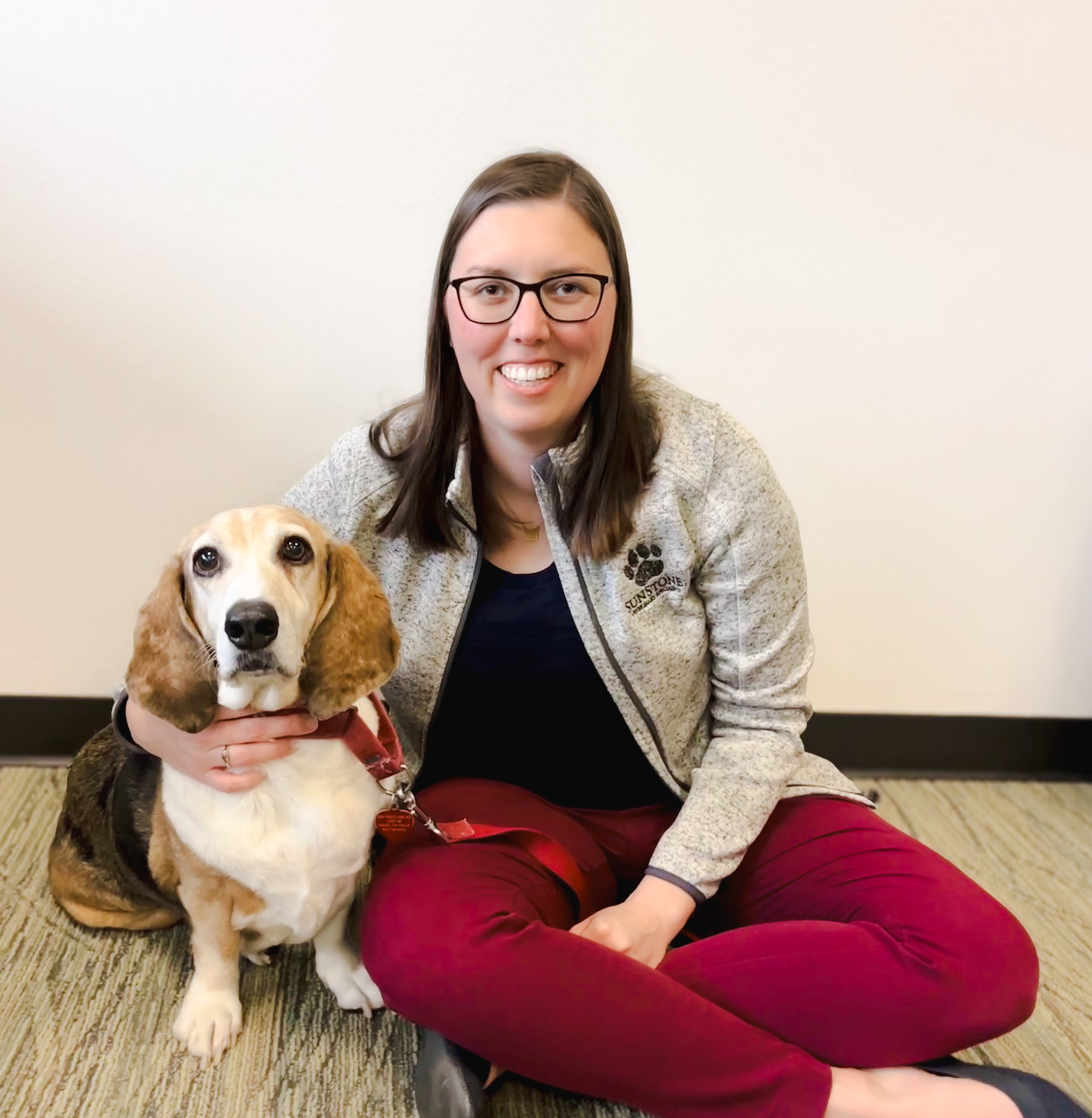Coughing in dogs isn’t just a funny noise; it can signal underlying health issues. Coughing is a common issue that can happen for various reasons. Understanding why dogs cough can help you identify the cause and get your pet the proper treatment.

Common Causes of Coughing in Dogs
Coughing is your dog’s way of clearing their throat, airways, or lungs. While minor irritants like dust can trigger it, coughing might also indicate a more serious problem. Here are some common reasons dogs cough:
- Kennel Cough
Dogs that spend time in kennels, shelters, or dog parks often catch kennel cough, which spreads through bacteria or viruses. As a result, this illness causes a dry, hacking cough that sounds like your dog is trying to clear their throat. - Heart Disease
Heart problems can lead to fluid building up in the lungs, making it harder for your dog to breathe. Therefore, older dogs are more likely to develop this condition. Their coughing often occurs at night or after exercise. - Collapsing Trachea
Small breeds like Chihuahuas and Yorkies are prone to tracheal collapse, which weakens the trachea and creates a distinctive “goose-honking” cough. Moreover, excitement, exercise, or pulling on the leash can make this type of coughing worse. - Allergies or Irritants
Dogs, like people, can develop allergies to pollen, dust, or other environmental triggers. For example, coughing that worsens during specific seasons or after cleaning could point to allergies. Furthermore, irritants such as smoke, strong scents, or cleaning chemicals may also cause coughing. - Infections or Pneumonia
Infections like pneumonia can cause coughing along with other symptoms, such as fever, appetite loss, and difficulty breathing. - Foreign Objects
Sometimes, dogs swallow small objects like toys, grass seeds, or bones. When this happens, the object may lodge in their throat or airways, causing sudden coughing. In these situations, immediate veterinary attention is essential.
How to Diagnose and Treat Coughing in Dogs
When a dog comes to the clinic with a persistent cough, veterinarians use several tools to determine the cause. Some of the most common diagnostic methods include:
- Physical Exam: The vet listens to your dog’s chest with a stethoscope to detect unusual sounds, such as fluid or irregular breathing.
- X-rays: Imaging allows the vet to identify potential problems in the heart, lungs, or airways.
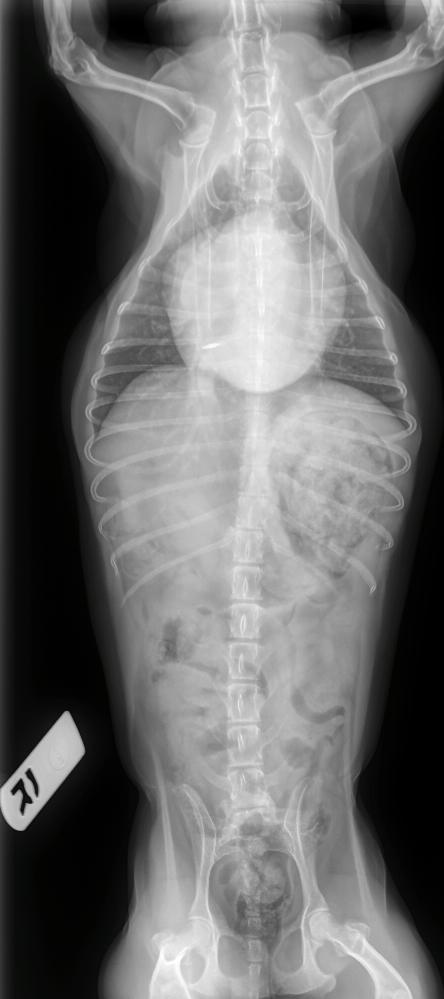
- Blood Tests: These tests can uncover infections or other underlying health conditions.
- Bronchoscopy: A tiny camera lets the vet examine your dog’s airways for blockages or damage.
- Curious to see the procedure in action? Click the image below for a behind-the-scenes look at our team performing a bronchoscopy!
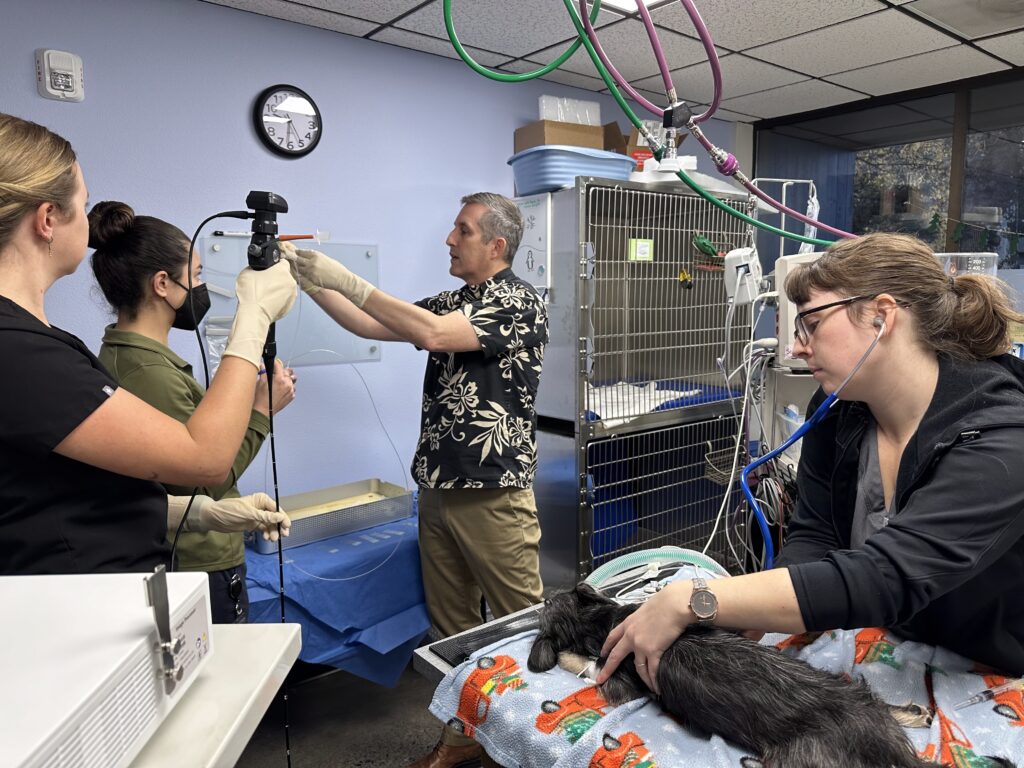
Treatment for Coughing in Dogs
Once the vet identifies the cause of your dog’s cough, they will create a treatment plan. For example:
- Medications: Antibiotics, cough suppressants, or antihistamines treat infections, allergies, or mild cases of kennel cough.
- Heart Medication: Specialized medications help manage heart disease and reduce fluid buildup in the lungs.
- Surgery: If a physical airway problem or a lodged object is causing the cough, surgery may be necessary.
- Cough Control: In some cases, reducing excessive coughing with medications can prevent further irritation or complications.

Specialized and Emergency Care at Sunstone Veterinary Specialists
At Sunstone Veterinary Specialists, we provide advanced care for dogs with complex or urgent conditions. Not only do we have internal medicine and surgery specialists to handle challenging cases like tracheal collapse, heart disease, or airway obstructions, but we also offer emergency and urgent care services for critical situations.
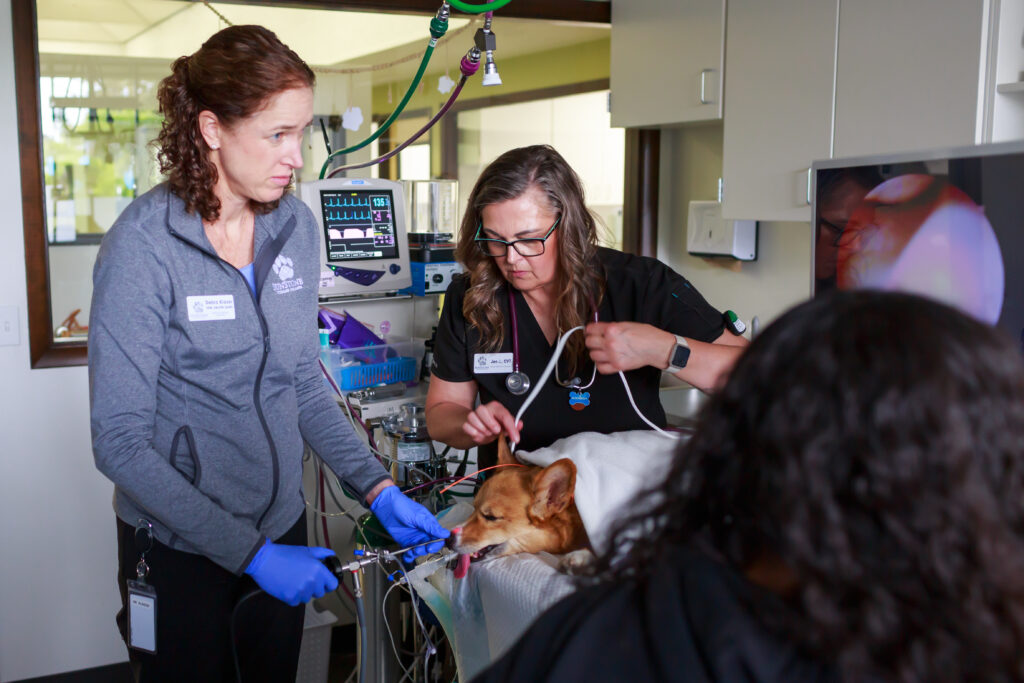
When to See a Vet
It’s important to bring your dog to the vet if their cough:
- Persists or gets worse over time.
- Occurs alongside difficulty breathing, lethargy, or appetite loss.
- Sounds unusual or happens more frequently than normal.
Ultimately, catching problems early often results in better outcomes for your pet.

Final Thoughts
While an occasional cough may not seem concerning, a persistent or severe cough could point to a serious issue. Therefore, it’s always best to contact your veterinarian if you notice changes in your dog’s health.
At Sunstone Veterinary Specialists, we are committed to providing compassionate care and expertise for you and your pet. Visit SunstoneVets.com to learn more or schedule an appointment.

